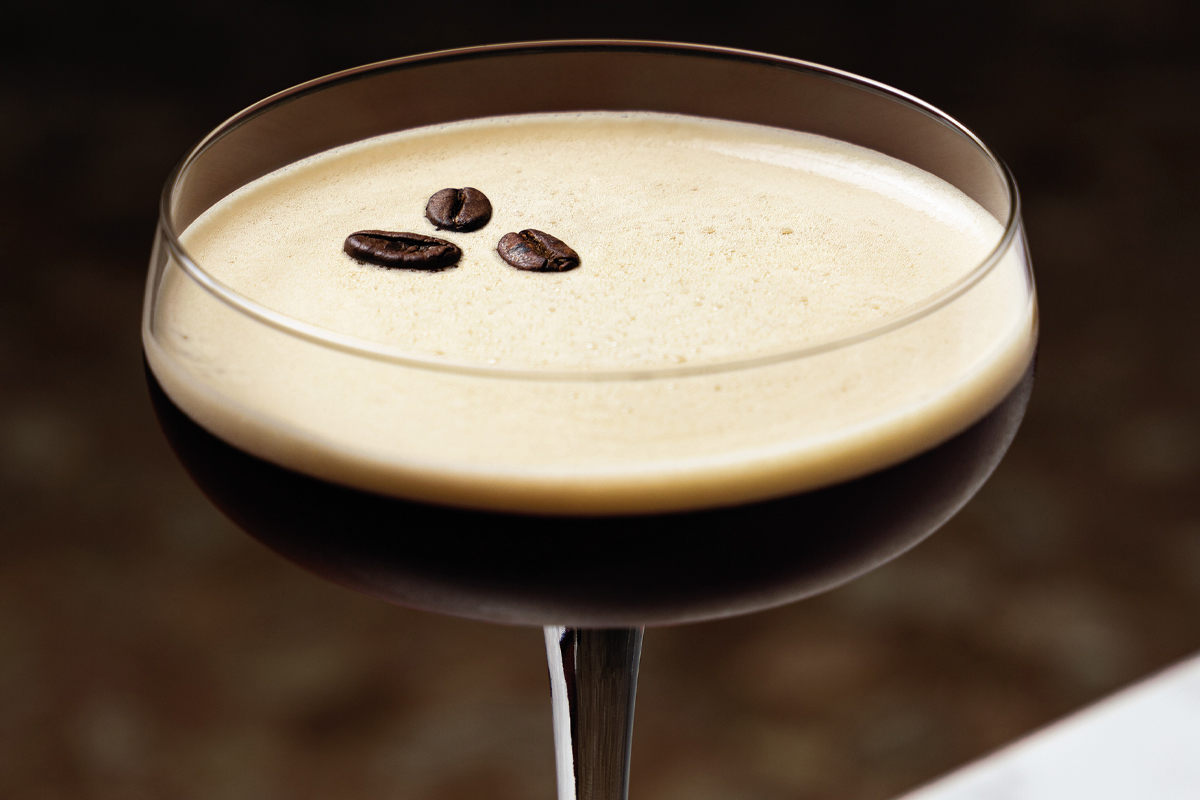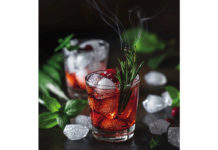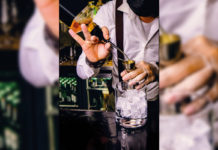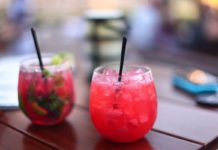From cocktails to hot beverages, coffee flavours are in high demand

AS cocktails go, it’s very much in its infancy – said to have been first created in the 1980s by London bartender Dick Bradsell for a now world famous model.
Originally called The Vodka Espresso followed by the Pharmaceutical Stimulant, the cocktail was then given the moniker The Espresso Martini and the rest, as they say, is history.
While perhaps not a ‘classic’ in the traditional sense, the combination of vodka, coffee liqueur, espresso and sugar syrup is widely considered a ‘contemporary classic’ and is a staple on cocktail lists across the country.
And it shows no signs of budging.
The growing popularity of coffee as a flavour and the expansion of the craft coffee movement in general in the UK is credited with paving the way for coffee’s inclusion in cocktails and driving demand for coffee-flavoured spirits.
Johnny Dennys, head of brand and trade marketing at Mast-Jägermeister UK, whose Jägermeister Cold Brew Coffee liqueur can be served both as an ice cold shot and used to create an Espresso Martini, said as innovation in the category continues, coffee has evolved “from a functional beverage to a trendy one”.
“The popularity of coffee has contributed to the growth of coffee-flavoured spirits in the UK, with more operators showcasing coffee cocktails prominently on their menus,” he said.
“Jägermeister’s latest innovation, Jägermeister Cold Brew Coffee, helps operators fit this consumer demand, making easy and cost-effective coffee cocktails.
“Jägermeister Cold Brew Coffee is the traditional Jägermeister recipe with 56 herbs and botanicals expertly fused with cold brew coffee made from coffee beans from Brazil and Colombia and cacao from the Ivory Coast. This makes it an ideal substitution for vodka to make a balanced and great-tasting twist on an Espresso Martini with just three ingredients as no coffee liqueur is needed.
“This allows operators to stock fewer spirits to make this popular cocktail, saving time and money whilst also generating additional sales opportunities.”
The continuing popularity of the Espresso Martini was underlined by Emilie Giffard, north Europe sales and marketing manager for liqueurs and spirits brand Giffard, who said demand for coffee liqueurs in cocktails has been “predominately driven by the Espresso Martini – in its most classic form and in new adaptations – as well as other classic cocktails like the Black Russian and White Russian”.
“Saying this, having an Espresso Martini specifically on the menu is good but is not mandatory, because most customers are aware of this classic and popular serve and are likely to ask for it even if it’s not on the menu,” she said.
“So, they know it and they expect bars to be able to provide it.
“We would recommend introducing a twist on the classic Espresso Martini, this could make your bar stand out from the crowd.”
That was echoed by Emma Hamilton, co-founder of Edwards 1902, whose range includes Cold Brew Coffee Liqueur and a recently-launched ‘decaf’ variant of the liqueur.
Advocating offering a ‘twist’ on the classic Espresso Martini, Hamilton said whatever the cocktail, the “base ingredients are key to success”.
“A really great coffee cocktail needs both a great coffee, and a great coffee liqueur (and of course a premium vodka/spirit) – and there really are a few fantastic liqueurs out there now that operators should try,” she said.
“By operators creating more ‘authentic’ coffee cocktails, not overly heavy on the sugar, it allows the flavour of the key ingredients to really shine – and with good starting ingredients, the end result is always going to be great.”
The importance of ingredients was also flagged by Yves Consentino, founder of Algebra Extra Dry coffee liqueur, who advised operators to stock coffee liqueurs to suit their venue’s clientele and the “precise type of drink they want to make”.
Bartenders should, according to Consentino, strive to “make the best possible Espresso Martini they can”.
“And with the current availability of amazing coffee and speciality coffee liqueurs, there are now more options than ever to design stunning versions of this drink,” he said.
“The new generation of speciality coffee liqueurs have a much lower sugar content (Algebra Extra Dry, for instance, contains only 100g of sugar per L – the minimum legal sweetness level for a liqueur in Europe), which makes them fit to work in a greater range of mixed drinks as well as for sipping. This is a key difference which broadens the appeal and reach of the category.
“The drier speciality coffee liqueur brands will work in mixed drinks where an intense coffee character is sought, without tipping the cocktail’s balance towards the sweet and rich end of the flavour spectrum. This opens the door to elegant bitter and dry stirred drinks, like Old Fashioned, Negroni or Manhattan variations, and refreshing carbonated drinks, like Algebra topped with tonic or soda water and any number of highball recipes.”























